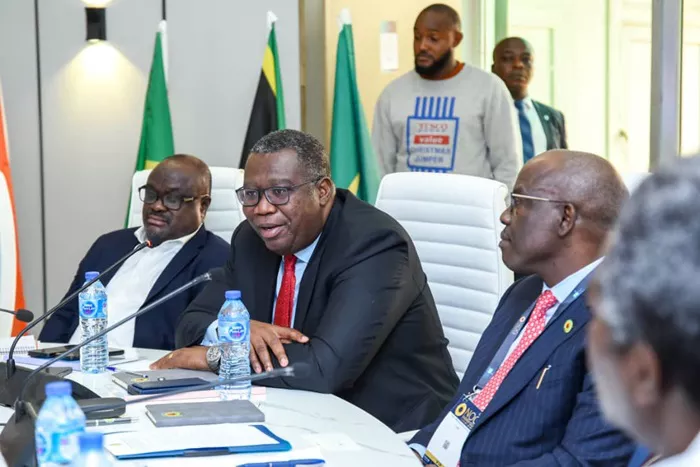The Minister of State for Petroleum Resources, Senator Heineken Lokpobiri, inaugurated the Nigerian oil sector’s inaugural Industry Stakeholders’ Forum in Abuja. The forum aims to align policies, regulations, and activities within the sector, marking a significant move towards addressing the industry’s challenges and fostering greater collaboration among key players.
Lokpobiri, while addressing attendees, emphasized the importance of creating a platform similar to the bankers’ committee or capital market committee—where industry stakeholders can convene, discuss challenges, and develop solutions. The minister underlined the necessity of resolving overlapping functions, particularly issues related to taxes, levies, and customer dissatisfaction at filling stations.
“We need a forum where all stakeholders can gather, address concerns, and shape the future of the industry,” said Lokpobiri. He revealed that the forum would meet on a quarterly or bi-monthly basis, depending on agreement among participants. The objective is to ensure the oil industry operates more efficiently and meets the growing demands of the nation.
Focus on Fuel Pricing and Quality Control
During his speech, the minister addressed the ongoing deregulation of the downstream oil sector, acknowledging that fuel prices will fluctuate in response to global crude price changes. He stressed, however, that the government’s primary concern lies in ensuring fuel quality, availability, and proper dispensing practices.
“As crude prices rise or fall, fuel prices will adjust accordingly. However, our main priority is quality control, ensuring the right quantity of fuel is dispensed, and guaranteeing availability across the country,” Lokpobiri stated.
The minister also noted Nigeria’s efforts to ramp up oil production, citing the need to address policy conflicts between agencies and the burden of excessive taxes and levies. The government is focused on resolving these issues to create a more conducive environment for growth and investment in the oil sector.
Upstream Sector’s Growth and Collaboration with Security Agencies
In his address, the Chief Executive Officer of the Nigerian Upstream Petroleum Regulatory Commission (NUPRC), Gbenga Komolafe, provided an optimistic outlook for the upstream sector. He reported a 1.45% increase in national oil and gas reserves and a 26% rise in oil production from April 2023 to November 2024. The active rig count has also surged by 79%, from an average of eight rigs in 2021 to 38 today.
Komolafe attributed much of the sector’s recent growth to improved collaboration with security agencies, which has led to a significant reduction in theft and oil deferment, by more than 40% in the past year.
“Our efforts to combat theft and improve security are paying off, and it’s not all gloom for the industry. The collaboration with security agencies has resulted in a major reduction in criminal activities affecting oil production,” he said.
He also outlined the NUPRC’s five-point agenda for 2024, which includes the implementation of initiatives to increase oil production, enhance transparency in hydrocarbon measurement, and optimize unit costs to boost federation revenue. Komolafe added that the commission is working towards achieving the government’s 2025 production target of 2.062 million barrels per day, up from the current average of 1.7 million barrels.
Midstream and Downstream Developments
Farouk Ahmed, the Chief Executive of the Nigerian Midstream and Downstream Petroleum Regulatory Authority (NMDPRA), also spoke at the forum. He highlighted the authority’s efforts to protect consumers from exploitative practices and to promote the development of Compressed Natural Gas (CNG) as an alternative to petrol. Under the Presidential CNG Initiative, the NMDPRA has facilitated the growth of conversion centers, raising Nigeria’s CNG vehicle population to an estimated 30,000 to 50,000 vehicles.
Ahmed revealed that Nigeria’s refueling capacity has grown significantly, with over $400 million in investments attracted for new stations and infrastructure. He also emphasized the importance of safety standards, with the Nigeria Gas Vehicle Monitoring System expected to launch in 2025.

